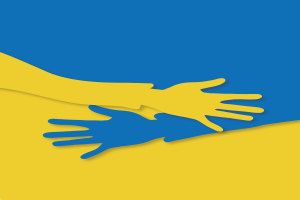
1 in 3 households home to at least 1 person with a chronic condition is unable to secure medication and care
Lviv: At the 2-month mark of the war in Ukraine, a new survey by World Health Organization illustrates the devastating impact of the humanitarian emergency on the health and well-being of millions of civilians, and the severe challenges facing the Ukrainian health system. Already WHO has verified 162 attacks on health care as of April 21 in Ukraine since the war broke out on February 24, 2022.
Preliminary results from an ongoing nationwide health needs assessment indicate that of the 1,000 households that have responded so far, 1 in 3 (30%) that have at least 1 person with a chronic disease reported challenges in accessing care for those conditions. The survey also shows that 2 out of 5 households (39%) have at least 1 member with a chronic illness, such as cardiovascular disease, diabetes or cancer.
Less than a third (30%) of respondents sought out health-care services recently; of those, 39% cited the security situation as the main reason, while 27% reported that no health-care services were available at all in their area.
Most households (70%) surveyed are sheltering in their own homes at this time, while 11% are staying with friends and family members in relatively safer areas, 8% are on the move within Ukraine, and 3% are in a shelter or camp for internally displaced people.
“Two months into the war, our findings show the urgent need for continued health system support in Ukraine,” said Dr Jarno Habicht, WHO Representative and Head of the WHO Country Office in Ukraine.
“Through our long-standing engagement with the Ministry of Health, national health institutions and our many partners and donors, WHO has been able to reach nearly 7.5 million people over the past 8 weeks with life-saving supplies, equipment and medicines. But we are still unable to reach some of the hardest-hit areas in the east where the health system has all but collapsed. We have received reports, for instance, that nearly all health facilities and hospitals in Luhansk oblast are either damaged or destroyed, and the situation is critical in several others. It is vital that we gain access so we can assess health needs and move vital supplies into affected areas, including Mariupol. Civilians have a right to health, even in times of war.”
Ukraine’s health system is facing multiple challenges, with the situation growing direr by the day. The risk of infectious diseases, and increasingly waterborne diseases, is significant, and routine immunization, including COVID-19 vaccination, is greatly diminished because of the war.
Access to reproductive, maternal and antenatal care, as well as mental health care, is severely impacted due to security concerns, restricted mobility, broken supply chains and mass displacement. And health care continues to come under attack, with more than 160 verified incidents since February 24.
“As the health agency of the United Nations, WHO is in a unique position to engage in dialogue with all parties to press for, and secure, safe passage for critical health and medical supplies nationwide,” explained Dr Hans Henri P. Kluge, WHO Regional Director for Europe. “Through our Regional Office and country offices, we are constantly in touch with Health Minister Viktor Liashko and Ukrainian health authorities, collectively strategizing to ensure as best we can that health-care providers and facilities can continue to function.”
Working closely with partners on the ground and through the generosity of a range of donors and funders, WHO has managed to deliver specialized medical and emergency supplies, deploy medical teams in hard-to-reach areas, and help minimize disruptions to critical services, including treatments for HIV, tuberculosis and diabetes, routine immunizations, and mental health support.
As of April 21, 2022, WHO had received US$ 26.3 million of its appeal for US$ 45 million (58%) to cover its emergency response from March through May. A further US$ 18 million has been pledged. These funds will enable it to reach 6 million people with healthcare assistance, WHO stated today.
– global bihari bureau





